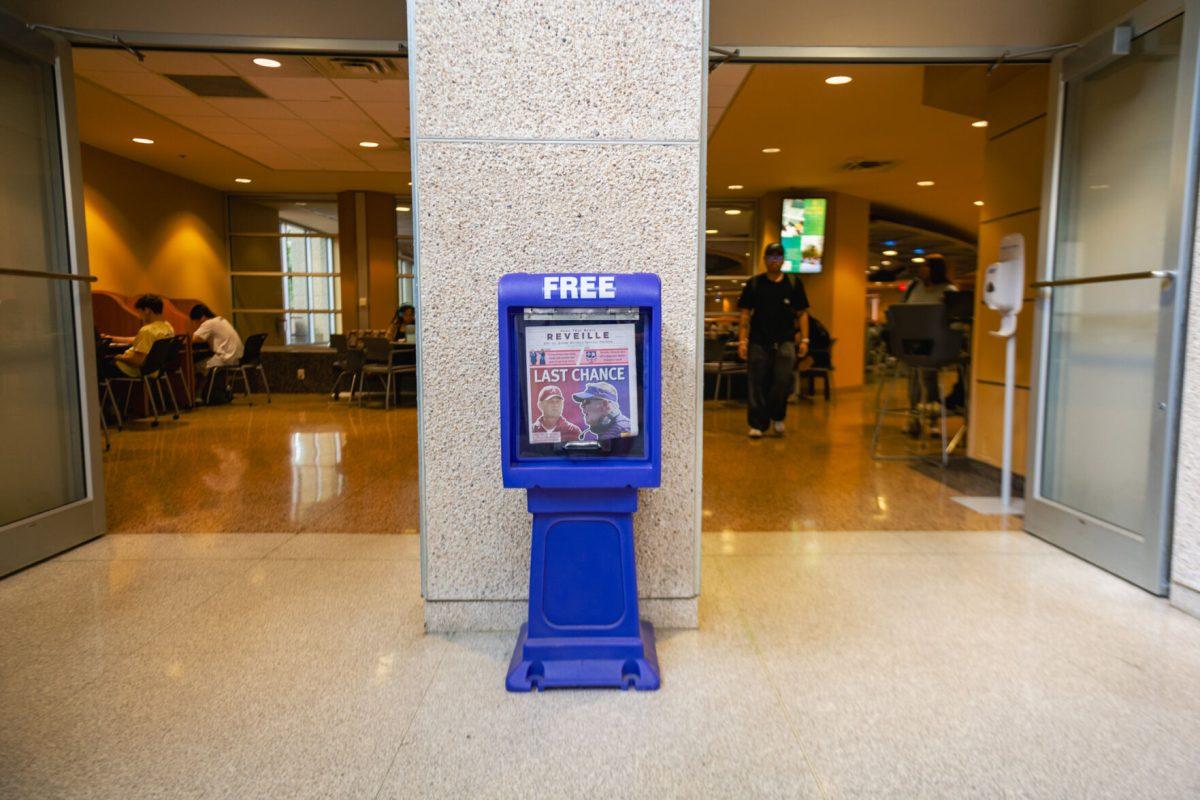Stop what you’re doing and look around.
Wherever you are, you’re bound to see women walking around, studying or laughing. Women you have class with, women you’ve run into once or twice and some you’ve never met.
If the most recent statistics are to be believed, before they leave LSU, one in four of these women will have been sexually assaulted in their lifetime.
And the University leaders, counselors and other adults who are entrusted to protect them don’t provide the adequate resources to do anything about it.
University measures largely focus on helping victims of sexual assault, but seemingly little effort is given to preventing these crimes before they occur.
But even the resources in place for victims are insufficient for the scale of the problem.
The Lighthouse Program, which constitutes about 90 faculty members who volunteer to make themselves available to talk with victims, is well-meaning, but it’s no substitute for a professional counseling program.
Sexual assault is a traumatic experience, and survivors need more expertise than a professor who has been through a one-day counseling training course. Anyone volunteering to be a Lighthouse Advocate should be commended, but they should not be the first resource for victims seeking help.
The Student Health Center’s Sexual Assault Nurse Examiners program, or SANE, provides the medical treatment assault and rape victims need, but does not provide mental health counseling specifically for victims.
And with its limited staff and schedule, it does not offer services on nights and weekends — the time when the majority of college sexual assaults happen.
The absolute least the University should offer to victims of sexual assault is a place to visit or a phone number to call that’s available at all times.
Sexual assault is a problem of culture first and foremost, and it requires proactive measures from the University to fight it. It is not enough to merely support the survivors. The University must work to prevent sexual assaults and make it clear that perpetrators will not go unpunished.
The University’s preventative efforts are limited to a skit put on for freshmen orientation and the online questionnaire “MyStudentBody.” (There is also a question-and-answer panel at orientation about health where students can ask questions about sexual assault.) These programs feel more like chores to the students who undertake them than important reminders of the dangers they may face on a college campus.
Lumping in messages about the importance of legitimate consent with information about emergency contraception, like the “Plan B” pill, and proper use of condoms trivializes the problem of sexual assault and makes rape sound more like an embarrassing health problem than the serious criminal issue it is.
These programs are not going to attract students’ attention before the beginning of the semester — when the majority of sexual assaults occur — and they fail to place responsibility on the people who commit assaults, instead telling women to “say something if they see something.”
The University must make it clear that the responsibility doesn’t lie with potential victims, but with potential perpetrators. It must send the message “Don’t rape,” not “Don’t get raped.” And it must make clear that anyone found guilty of sexual assault on campus will face the harshest repercussions possible.
No more hearings with the Office of Student Advocacy and Accountability. Rape is rape and assault is assault, no matter where it happens, and it’s time the University punished it with that in mind.
The Daily Reveille’s editorial board can be reached at editor@lsureveille.com.
Editorial: University resources inadequate to aid sexual assault victims
August 26, 2014
More to Discover













